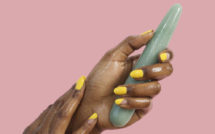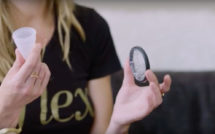
Last week I found myself perplexed and disturbed as the Aziz Ansari story broke. Not only were Atlantic and New York Times op-ed writers minimizing the victim’s experience by calling it a “disappointing hookup,” “a lousy romantic encounter,” and overall bad sex—many of my feminist friends were echoing this sentiment, too.
Sensationalized tone aside, I believe that the Babe.net piece is one of the most important stories to come out of #metoo. This time, it wasn’t a disgusting slimebag like Harvey Weinstein preying on dozens—it was a popular, affable (non-white) dude who’s built his empire on talking about the shit women have to go through when dating. THIS guy was aggressively following a fearful woman (“Grace”) around his apartment, shoving his fingers into her mouth and ignoring her verbal and non-verbal requests to stop.
I’ve heard other stories about Aziz from friends-of-friends—tales where he treats women like garbage in the workplace, no less. (For whatever reason, maybe because of the vitriol aimed at Grace, these women are remaining silent.) But in this news story, it wasn’t just the victim-blaming that got me, but the slut-shaming, too. In the Atlantic article, Caitlin Flanagan cluelessly remarked that Grace “hoped to maybe even become the famous man’s girlfriend.” Others have already pointed out what seems more plausible–maybe she just wanted to have good sex with someone she admired and liked.
I went through a breakup last year, which happened for many reasons. One was that my partner shamed me for asking for what I wanted while having sex—both the content and the ask itself. When we’d become exclusive, I’d told him outright I wanted to experiment sexually. I’d been a late bloomer, and now that I was in my thirties, I wanted to explore the full range of pleasure I’d been missing. But every time I asked my boyfriend to try something—dirty talk, narrating fantasies, and even finding a place in semi-public to have sex—he either joked about it or made me feel weird for bringing it up.
When we broke up, I made the decision to explore on my own. Always having thought of myself as a totally straight woman, my initial searches opened up a new world, one that a lot of people, it turns out, partake in. I joined an app to find couples for threesomes, I went to play parties, and I started becoming attracted to women in addition to men. In the midst of these new experiences I’ve learned a lot about my own sexuality, as well as how others, particularly men, have reacted to my unapologetic stance.
In my job, coincidentally, I’ve learned that there are millions of women in this country living in a state of boredom or distress about their sexuality. Many consider themselves abnormal for perfectly normal things—such as getting bored by vanilla sex, fantasizing while with a partner to have an orgasm, and even struggling to have orgasms in the first place. And our culture continues to ignore and shame women’s needs. The societal lack of interest in female pleasure then leads to horrifying situations like the one Grace experienced with Aziz.
Over the next few months, Demystified is allowing me to share my thoughts and experiences about my search for “good sex,” as well as the reactions I’ve gotten from partners—both male and female—along my journey. I hope that these essays will cause other women to feel empowered to also explore their sexuality, as well as give them the confidence to voice their needs loudly and without shame. Of course there will still be situations where the safest route for women is not to say no, for fear of further harm. But those with partners who are more clueless than predatory, I think we need to discuss the ways that ensure that we are feeling empowered and having a good time. (This in no way takes away from the work that men need to do—and are finally, if belatedly, doing.)
Last week I was at a movie and saw a preview for “50 Shades Freed.” The part that struck me the most was when a woman flirts with Sebastian in front of Anastasia. Anastasia puts a stop to this by saying, “You may call me Mrs. Grey.” I don’t think anyone takes this series as a realistic portrayal of female sexuality. But this scene really drove home how fucked up our culture is about the topic, coming from a place of scarcity, insecurity, and submission, instead of empowerment, fun, and joy.
Photo by David Cohen.



